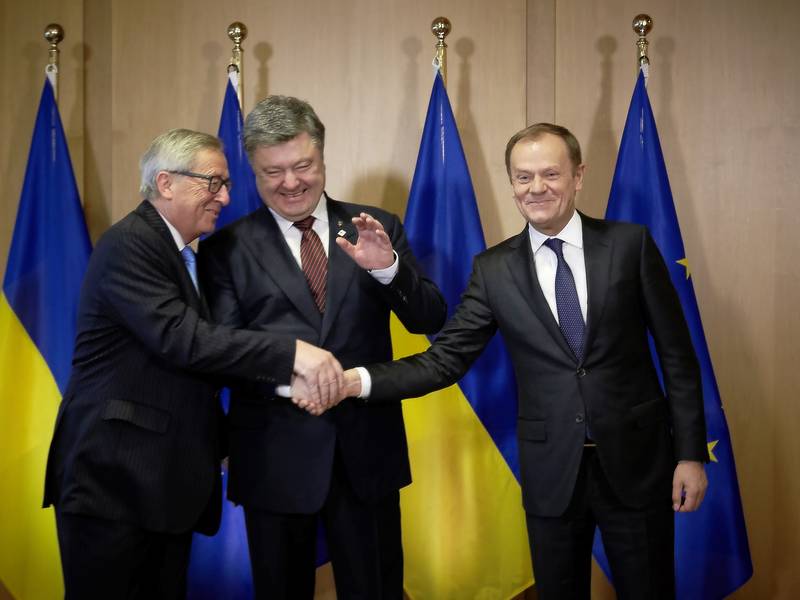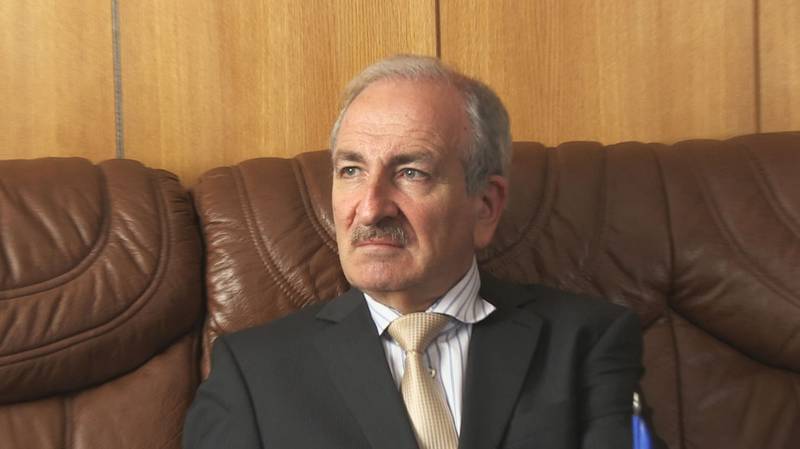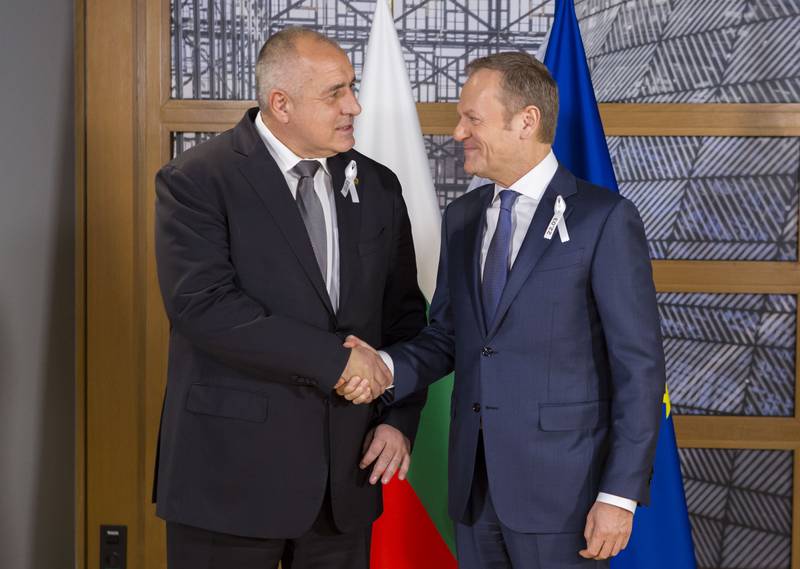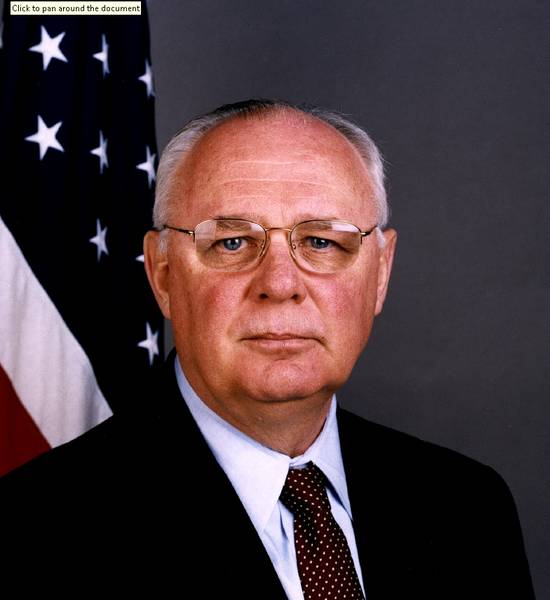Ukraine Ambassador to Bulgaria: Russia Hates European Values
Adelina Marini, July 13, 2016
 Ukraine needs a strong and unified European Union, which is capable to counteract Russian aggression and keep guaranteeing international law. To Ukraine the EU remains an attractive project, including regarding fighting corruption, but challenges, faced by the Union and thus by Ukraine, remain considerable. Those are some of the subjects of my interview with the Ukrainian Ambassador to Bulgaria, His Excellency Dr Mykola Baltazhi. Four years have passed since we last spoke in his office in the embassy building in the Sofia Ovcha kupel residential area. In these four years, however, it seems that ages have gone by in the EU and the world around it.
Ukraine needs a strong and unified European Union, which is capable to counteract Russian aggression and keep guaranteeing international law. To Ukraine the EU remains an attractive project, including regarding fighting corruption, but challenges, faced by the Union and thus by Ukraine, remain considerable. Those are some of the subjects of my interview with the Ukrainian Ambassador to Bulgaria, His Excellency Dr Mykola Baltazhi. Four years have passed since we last spoke in his office in the embassy building in the Sofia Ovcha kupel residential area. In these four years, however, it seems that ages have gone by in the EU and the world around it.
Back in the day the president of Ukraine still was Viktor Yanukovych, the association agreement was not yet signed, the Crimea was not yet annexed, and Russia had no sanctions levied against it yet. The propaganda war was still viewed as science fiction, or rather a fossil from the times of the Cold war. The Union itself was still certain of its future and unity, euroscepticism was an isolated event, the main subject in Europe continued to be the debt crisis in the euro area. This is why the main topics of our conversation in the spring of 2012 were politically-motivated court cases, like the one against the former PM Yulia Timoshenko, the association agreement with the Ukraine, the fight against corruption, and Ukraine’s European perspective. Currently the situation is very different, although fighting corruption remained a subject in our conversation of July 8, 2016.
EU disintegration would be the greatest present for Putin’s Russia.
There are great changes happening in Europe, told me His Excellency in reply to my question how does Europe look to him today, after the referendums in Great Britain and The Netherlands, but he appeals not to overdramatise. There are many occasions when the EU collided with serious problems, but came out of them even stronger. His hope is that this will happen after the Brexit, as well, because it is very important for Ukraine that the EU continues its support for the territorial integrity of the Ukraine and for the country’s systemic reforms. So far the Union’s reply has been encouraging, he said, reminding the assurance by European leaders from June 27th, during their meeting in Brussels with Ukraine’s President Petro Poroshenko, that regardless of how the procedure of Great Britain’s leaving the Union unfolds, the EU will uphold its support for Ukraine, including along the “most current problem” at the moment – introducing a non-visa regime for Ukrainian nationals. In April, the European Commission proposed to the Council to lift the visa requirements for Ukrainian citizens. Commissioner Johannes Hahn (Austria, EPP) has assured Kyiv that the decision on that could be made in the autumn.
The most important issue for Ukraine remains keeping up the sanctions against Russia for the annexation of the Ukrainian peninsula of Crimea in March 2014. In June, the Council of Ministers extended the validity of EU sanctions to the end of the year. Kyiv, however is concerned that the Union’s consensus on this may crack. Some European politicians have lately started to talk more and more about European economies suffering and the need to lift the sanctions, says Mykola Baltazhi, refraining from naming particular states. At the same time, he adds, Russia itself is doing everything possible to disintegrate Europe by an attempt at convincing European citizens that sanctions are redundant and unnecessary.
"Let us be realistic, sanctions are working. If they were not, Russia would not have undertaken such active measures through its lobbyists and attorneys in the EU and member states in order to downsize or lift them. This is a good instrument – a peaceful, I repeat, and diplomatic instrument for stopping Russia as an aggressor, for motivating it to return to implementing the Minsk agreements, where it is clearly written, in the European Council Regulation of July 31, 2014 [word is of the Council of Ministers’ Regulation, which imposes sanctions on Russia], that sanctions could be lifted after Russia fully implements the Minsk agreements", stated Ambassador Baltazhi. He stressed that by its decision to impose sanctions the EU stood behind Ukraine and behind the fundamental principles of international law. The Union has also proved that it will not agree with the attempts of territorial revenge in Europe.
If it yields to Russian pressure, however, and the sanctions are lifted, the EU will agree with the trampling of not only the fundamental principles of international law and dozens of international conventions, but with trampling European values as well. "It [Russia] in fact hates them [European values] and the EU will in fact sign under this", added the Ukrainian ambassador. He did not engage in a forecast whether such a turn of the situation could lead to more acts of aggression by Russia, but stated that the aggressor will go on if it has no worthy resistance. To Mykola Baltazhi this subject is a “serious test for Europeans to remain attached to European values”.
Europe’s biggest mistake after the Second World War will be to allow disintegration. This will be a present for Putin’s Russia, also said Mr Baltazhi, praying this does not happen.
Current Russian propaganda is much more aggressive than the Soviet one
At the moment, Russia is waging a heavy propaganda war against the West in general, attempting to create a parallel reality, whose aim is to generate hatred towards the EU and NATO. “This is being done in the good old Soviet traditions. I, however, as an eyewitness of the propaganda of the time, can say that current rulers and their propaganda are much more aggressive than back then”, says Mykola Baltazhi. At the moment, levels of trust in Russia are below the waterline in the West. “There are newer and newer myths thought-up, the situation in the state itself is being tensed-up, they rely on naive people, zombie people. This can be witnessed on Russian television. And this is very dangerous”, warns the ambassador. He believes that retaliation action by the West is not sufficient.
Additional measures are necessary, because Russian influence is growing. He gave an example with Bulgaria, quoting changes in the realm of culture, the invasion of the “Night wolves”, “you can feel it everywhere”. Russian propaganda is something invented in “the best traditions of Goebbels propaganda, to enchant a person’s consciousness, make him believe in something. This is extremely dangerous for a civilised Europe”, thinks the ambassador.
What future for the Ukraine?
The referendums in The Netherlands and Great Britain give no benefits, but the will of voters must be respected, said the Ukrainian ambassador to Sofia after I asked him about the referendum in The Netherlands. On April 6th of this year, Dutch voters discarded the ratification of the association agreement with Ukraine, negotiated in 2013. This agreement was the reason for the start of the revolution in Ukraine. It was also the reason behind the Russian aggression in the country. On March 21st of 2014 were signed the political chapters of the agreement, which stipulates a comprehensive trade agreement, and the rest of the chapters were signed on June 27th of 2014. The agreement will come into force after all member states ratify it. Surprisingly, the ratification by The Netherlands was put to a referendum.
"We are not happy that this happened at the final stage, when all states had already ratified the agreement, including Bulgaria, which was one of the first to ratify the agreement. I think, however, that this is not just a signal for – or even not as much to Ukraine, as to Europe itself, about the actual government of this country [The Netherlands]”, thinks the Ukrainian ambassador. He believes the Dutch are unhappy with their government’s policies. He assured, that Ukraine never had and never will have “a contribution” to the fears of Europeans from migration. Mykola Baltazhi expressed hope, that a solution to this question, too, will be found. Dutch PM Mark Rutte was not such an optimist during the  EU summit of June 28 and 29 in Brussels, when he presented to the rest of the leaders the outcome of the referendum.
EU summit of June 28 and 29 in Brussels, when he presented to the rest of the leaders the outcome of the referendum.
They, on the other hand, appointed ministers with finding a solution. Mark Rutte stated that The Netherlands needs a legally-binding agreement, which would answer the worries of Dutch citizens, voiced during the campaign. How would that look – whether in the form of an annex, or a change in the text of the agreement – is still unclear. If a solution is not found, however, The Netherlands will not ratify the agreement. “We will try to find a solution, it will be difficult, the chances are small that we will get there, but we will try because not signing will mean also that the other 27 in some way or another will continue or renegotiating something else of which the Netherlands is not part and I don’t think that’s the answer the no-camp in the Netherlands would have liked to achieve”, stated the Dutch PM in front of journalists on June 28. To Mykola Baltazhi the problem is rather a European one. “Now is the time to think more about Europe itself and the preservation of the European project”, he said.
In any case, Ukraine depends on the EU’s success for its own sake. Ambassador Baltazhi and I spoke at length about the problem with corruption, which has been plaguing the country for decades. He admits that this is a very complicated issue for Ukraine, which has amassed over the last 25 years, since the country became independent. At the moment, Ukraine, with the aid of the EU, IMF and other international organisations, implements deep reforms – as His Excellency names them “systemic” ones. He lists the creation of an anti-corruption bureau, specialised prosecutor for fighting corruption. He says not a day goes by without someone being caught for corruption. Estonia is an example to follow. Bulgaria in this sense could not be useful, admits Ambassador Baltazhi, regardless of its special Cooperation and Verification Mechanism, with which the EU monitors its battle against corruption and organised crime.
Ukraine is also leading a heavy battle for the de-oligarchysation of the economy, because, he says, without this there is no competition and free economy. What does then motivate Ukraine, when there is no carrot in front of it of joining the EU, as is with membership candidates? The answer comes with no hesitation – there is political will and a strong civil society. “Who is the most important controller in society? Society itself, civil society, which with us is developing well”, says the Ukrainian ambassador to Bulgaria and adds that the battle against corruption should not be a campaign, but should be led consistently, targeted, and have serious control by society. Another strong motivator to Ukraine is the introduction of a visa-free regime.
Mykola Baltazhi admits there is a chance that a possible weakening of the EU and even disintegration or lifting sanctions against Russia may have a demoralising effect to Ukraine, including regarding the fight against corruption. “The strongest support is by the EU, the better for the Ukraine as a motivating factor”, he says, but at the same time states that Ukrainians are realists and know that the exit of the United Kingdom could not lead to a strengthening of the EU. The Union has great internal potential, which should be used. If it is used, it would not disintegrate, assures the diplomat and adds that Ukraine needs a strong and unified EU. The stronger and more unified it is, the better for us, he says, answering my question about the discussion within the Union itself whether there should be more or less Europe. He ends our conversation with the words that he is an optimist – both as a diplomat and as a citizen. If an Ukrainian can be optimistic about the EU, why couldn’t the Union be optimistic about itself?
Translated by Stanimir Stoev
 Boyko Borissov, Donald Tusk | © Council of the EU
Boyko Borissov, Donald Tusk | © Council of the EU Boris Johnson | © Council of the EU
Boris Johnson | © Council of the EU James W. Pardew | ©
James W. Pardew | ©